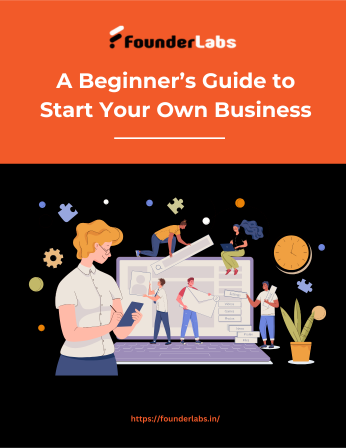Starting a business often means wearing multiple hats—founder, marketer, designer, accountant, and more. For early-stage founders, every rupee counts. That’s why using free, high-performing tools can be a game-changer. Whether you’re building your brand, handling customer communication, or analyzing market data, the right tools can help you do more with less.
Here’s a curated list of the top 10 free tools every founder should know about. These tools are designed to help you save time, streamline processes, and grow your business without burning your budget.
1. Notion – Your All-in-One Workspace
Founders often juggle everything from product development to team collaboration. The notion is an all-in-one productivity tool that combines note-taking, task management, wikis, and databases in a clean interface. It’s perfect for solo founders as well as growing teams.
With Notion, you can manage your content calendar, design a CRM, write meeting notes, and even plan your pitch decks. The free version allows unlimited pages and blocks for individuals and offers generous sharing capabilities.
2. Canva – Design Like a Pro Without a Designer
When you’re starting out, hiring a designer isn’t always feasible. Canva allows you to create professional-looking designs for pitch decks, social media posts, business cards, and more. Its drag-and-drop interface and free access to thousands of templates make it one of the most accessible design tools.
Whether you’re designing a logo, ad creatives, or infographics for your pitch, Canva’s free version provides more than enough firepower for most early-stage needs.
3. Trello – Visual Project Management
Founders need to stay organized. Trello offers a visual way to manage projects using a board-and-card system. From launching a new product to managing a content marketing calendar, Trello lets you assign tasks, set deadlines, and track progress in real time.
Its free version allows for unlimited personal boards and up to 10 team boards, making it a great tool for small teams or solopreneurs.
4. Zapier – Automate Your Repetitive Tasks
Automation is the backbone of modern startups. Zapier connects your favorite apps (like Gmail, Slack, Google Sheets, Mailchimp, and more) to automate workflows. For instance, you can create a “Zap” that saves every new Gmail attachment to Google Drive or sends Slack alerts for new leads from Typeform.
The free tier allows for basic automation that can drastically reduce your manual workload, especially as a solo founder managing operations end to end.
5. HubSpot CRM – Keep Track of Every Customer
Your first 100 users are often the most critical. HubSpot’s free CRM helps you organize contacts, track deals, and manage customer interactions in one place. You can also access email tracking, pipeline management, and live chat tools—all at no cost.
For founders building customer relationships, HubSpot CRM is invaluable for managing conversations, follow-ups, and sales funnel visibility without needing to invest in a paid CRM early on.
6. Mailchimp – Email Marketing Simplified
Even in 2025, email remains one of the most effective marketing channels. Mailchimp offers a free plan that lets you send marketing emails, build landing pages, and automate workflows for up to 500 subscribers.
This tool is especially useful for founders who want to keep their users engaged with newsletters, product updates, and early access programs—without hiring an email marketing specialist.
7. Google Workspace (Free Tier) – The Basics You Can’t Ignore
Every founder needs a basic stack: email, calendar, documents, and storage. Google’s free tier (personal Gmail accounts) provides access to Docs, Sheets, Slides, Forms, and Drive—all tools that can handle your startup’s day-to-day needs without additional cost.
Google Forms, in particular, is a great free way to collect customer feedback, run surveys, or build early waitlists.
8. Figma – Collaborative Design for Product Teams
If you’re working on a tech or product-driven startup, Figma is a must. It’s a cloud-based interface design tool that allows real-time collaboration between team members, designers, and developers.
The free version allows up to three Figma files and unlimited collaborators, which is ideal for early product iterations, wireframes, or prototype testing.
9. Clockify – Track Your Time to Understand Your Focus
As a founder, time is your most valuable asset. Clockify helps you understand where your time goes by allowing you to track work hours, set time budgets, and generate reports.
You can categorize your hours by project, task, or client. The insights you gain from Clockify can help you focus on what truly drives impact for your startup and identify tasks you can delegate or automate.
10. Answer the Public – Know What Your Customers Are Asking
If you’re building content or refining your product positioning, understanding what your target audience is searching for is essential. Answer the Public is a keyword insight tool that visualizes Google search queries around a particular topic.
This tool helps you identify customer pain points, content ideas, and product opportunities. The free plan gives you access to daily search data, which is perfect for SEO-driven growth and content marketing efforts.
Why These Tools Matter
Early-stage startups are defined by constraints—of capital, time, and bandwidth. The right tools can’t replace a great idea or a hardworking team, but they can make the journey more manageable. These free tools are founder favorites because they address core startup functions: organization, automation, design, communication, analytics, and customer acquisition.
By leveraging them effectively, you can focus on building, validating, and scaling your product—without draining your budget.
If you’re just starting out, test these tools, integrate what works best for your workflow, and build your tech stack iteratively. As your startup grows, most of these platforms offer scalable paid tiers that grow with you.



